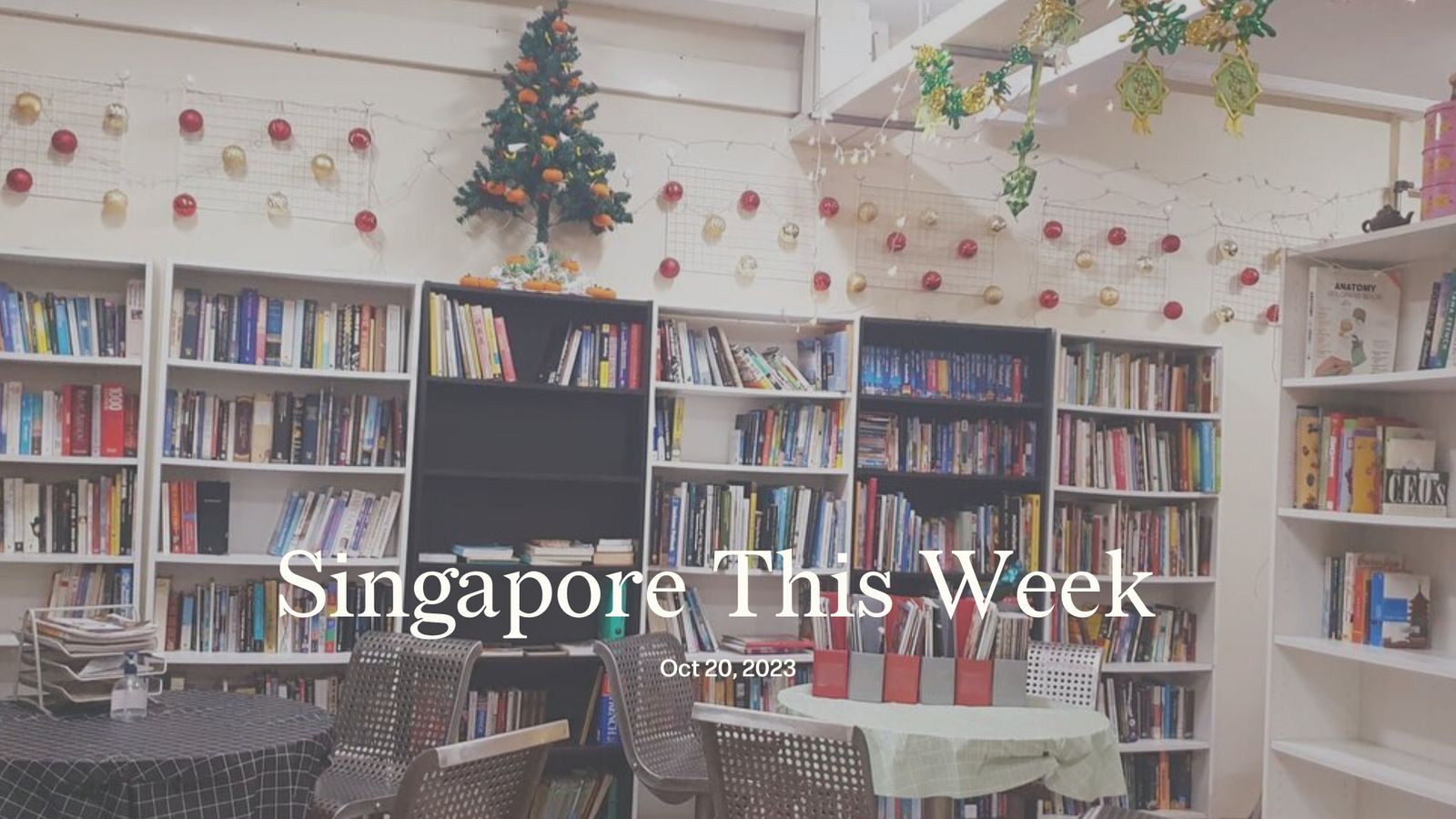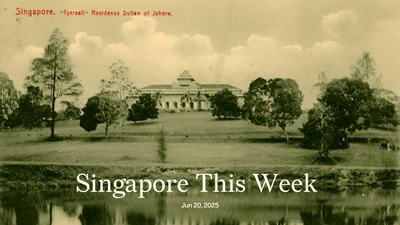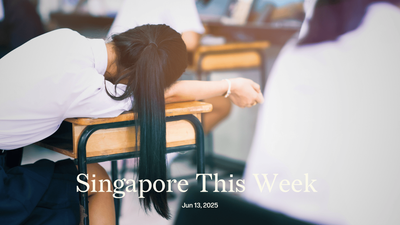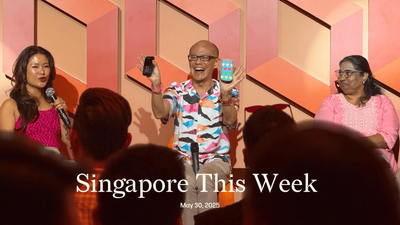Politics: Israel-Palestine discourse will be controlled by the G
“Singapore is deeply distressed by the increasing civilian casualty toll and deepening humanitarian crisis in the Gaza Strip,” said Singapore’s Ministry of Foreign Affairs (MFA) this week. “These arise from Israeli military operations in response to the attacks by Hamas on Israel on 7 October 2023.” MFA condemned Hamas’s terrorism; called for the release of hostages; and said that Israel has the right to defend itself but must comply with international law and “do its utmost to protect the safety and security of civilians.” Singapore also contributed S$300,000 towards humanitarian relief in Gaza, called on all parties to allow aid in, and reiterated its belief in a two-state solution to the seemingly intractable 75-year crisis. Singapore’s position reflects its close military and diplomatic ties with Israel, alongside the realities of increased sympathy for the Palestinian cause among the general public, as well as its oft-stated adherence, as a small state, to international law. (Singapore deviated from this, of course, in its 2003 support for the US-led invasion of Iraq.) The Workers’ Party, in response to constituent pleas, seemed to go further in its condemnation of Israel, calling for the immediate cessation of military operations in Gaza, highlighting previous “flagrant disregard[s] of the Geneva Convention, the United Nations (UN) Charter and other international legal instruments”; and also mentioning the UN Security Council Resolution 242, supported by Singapore, which “calls for the withdrawal of Israel from Palestinian territories occupied since the 1967 war.” But what do ordinary Singaporeans think? Unfortunately, public discourse will be muted. Commentators online will worry about saying anything that might flout the fearsome Maintenance of Religious Harmony Act. The Singapore Police Force (SPF) and the National Parks Board (NParks), meanwhile, said they will not approve applications for public events relating to the conflict. And so the Peace Rally for Palestine, planned for Hong Lim Park, will not go ahead this Sunday. (Another was planned for Marina Barrage.) “Given the sensitivity of the topic and the volatility of the situation overseas, there is a real risk that such events could give rise to public disorder,” said SPF and NParks. These fears are overblown. Singapore has no recent history of disruptive protests, let alone violent ones. Singapore’s chief mufti and rabbi just reaffirmed the solidarity between their communities. The whole premise behind Speakers’ Corner was to provide a space for peaceful discussions around contentious issues. More conversation is needed now, not less. By not trusting Singaporeans to gather, the government is undermining the maturing of societal discourse.
Editor’s note: Jom received lots of feedback on last week’s History blurb, about the conflict. We’ve published one letter from a reader about the issue.
Society: This is why we can’t have nice things
Stolen shelves, messily strewn books, children climbing on furniture and a lack of community effort have spelled the demise of a community library in Boon Lay. Hengster Kor, the founder of the library, spent months setting up the reading nook at the void deck of a Housing Development Board flat with the goal of creating a shared space for children to cultivate a love of reading and for residents to create meaningful relationships. On its opening day in April, some bookshelves were stolen. Two days later, all its books were taken, as well. “I haven’t felt so dejected for a long, long time, because I feel that I have failed many children. The sound of the heartbreak is real,” said Kor. The books were eventually returned, but the shelves stayed missing. Some residents suggested installing closed-circuit television cameras nearby, but Kor rejected the idea as he felt it would defeat the purpose of a community space built on trust. Now, six months later, Kor has decided to close the library for good. Given the “complaints and the mess that the children make every day”, he said on Facebook, it doesn’t “make sense to maintain the place.” This isn’t the first time community libraries have struggled with stolen items. HV Little Library, which opened last year at a HDB block in Holland Village, had a donated ukulele and some books go missing as well. It’s a real pity, considering the slow disappearance of shared community spaces partly due to new public estates that have smaller void decks and fewer communal tables. But it’s not all bad news—HV Little Library is still up and running, and continues to function as a hangout spot for residents to read, play table tennis and make music together. “This has grown to become bigger than I could ever have hoped,” said Wong Kae Chee, the founder. “It’s no longer just a library—it has made the block into a kampung.” If you’re looking to visit or contribute to a community library, you can find a directory here on the Little Libraries Singapore Facebook page. But if you’re looking to loot the place, don’t click on the link.
Society: At what cost, doing the ‘right’ thing
A country with a questionable culture of naming and shaming others on social media, and encouraging tattletales for the public good, is less sympathetic towards whistleblowers. According to a CNA report, they face “possible retaliation at work, lawsuits and the stress of their identities being exposed.” As people feel more emboldened to speak up against ethical injustices in their workplaces (think Kinderland and Wirecard) more could be done to protect them. After all, they put their lives and livelihoods at risk by sticking their necks out. Unlike jurisdictions such as Australia, the EU, Malaysia, and the US, Singapore doesn’t have dedicated whistleblowing legislation. Balancing regulation and the ease of doing business might be a possible reason: “We have always catered more towards the business interests than the interests of investors, consumers, employees and other stakeholders,” Professor Mak Yuen Teen, a corporate governance expert who also teaches at the National University Singapore Business School, told CNA. But certain laws like the Prevention of Corruption Act, Misuse of Drugs Act and Betting Act do contain safeguards that protect informants. Some multinational firms, non-profit organisations and government agencies also have their own policies for employees who wish to report corporate wrongdoings, such as fraud, collusion, forgery, workplace harassment and the misappropriation of funds. The Singapore Exchange Regulation (SGX RegCo), for instance, established a Whistleblowing Office—a confidential and dedicated channel for members of the public and investors to report issues or areas of concern relating to listed companies on SGX. The Economic Development Board has a Whistleblowing Framework—a platform for individuals to disclose any observed improprieties without “fear of reprisal”. Experts said that while the policies go some way to protect and encourage workers to expose misdeeds, they are often inadequate and ineffective, which prevents a lot of wrongdoing from being uncovered sooner or ever. Still it’ll take more than legislation to improve the environment for whistleblowers. Studies have identified that a major reason why people look away rather than report grievances is because employees think they’ll be wasting their breath—their reports end up in a blackhole or are ignored. Workplace culture and societal attitudes have to evolve too; frowning less and smiling more at those who speak up, treating them as assets rather than liabilities.
Earth: It came, it saw, it kenna culled
“Put down” and “euthanise”—two euphemisms trotted out to describe last week’s decision to end the life of a nearly 3m-long saltwater crocodile, sighted on a beach near Marina East Drive. They conjure the illusion of a considered, humane, and acceptable way to kill another being believed to be a threat to human safety. But, let’s face it, the crocodile was culled. Kalai Vanan Balakrishnan, co-CEO of the Animal Concerns Research and Education Society, told Jom that NParks’ decision “seemed like a knee-jerk reaction.” The statutory board had ruled out relocating the creature due to a risk it might return to where it was captured. But Balakrishnan asserted that there was no guarantee it would have. NParks should have attempted it anyway or looked into other measures, he said, like monitoring and telemetry work and giving the crocodile time: “It may have wandered off; it may even have returned to areas where humans do not frequent.” The Society for the Prevention of Cruelty to Animals called it “cruel” and “a short-sighted solution”. A scientific officer from the Herpetological Society of Singapore, a volunteer group, had earlier said that euthanising the creature was a cause for concern, as the locally critically endangered species was an apex predator and “an important cornerstone of the ecosystem.” But the society gave a more phlegmatic response after the culling, saying that the authorities were “doing their job” and “trying to balance nature and human safety.” So, is human life worth more than an animal’s? Some would argue that we are all equals on this planet. When Harambe, a 17-year-old western lowland gorilla, was shot and killed on May 28th 2016 to protect a toddler who had fallen into his enclosure, there was a great hue and cry. Others, like this writer for The Guardian, believe otherwise: “The idea that the life of a cat or dog…or gorilla is as important as the life of a human is a terrible one, a wrong one, an insulting one.” Yet, the only reason we’re forced into this moral quandary is because urban development encroaches into wildlife habitats and leads to more frequent human-wildlife conflicts. There’s also an inherent bias against animals not perceived as cute or friendly: “It often seems like the more convenient and economical way would be to eliminate them,” lamented Balakrishnan. “Public safety is important, but we also need to be compassionate in how we deal with animal-related problems.”
History weekly by Faris Joraimi
Time Out has crowned Singapore’s Chinatown the 14th “coolest neighbourhood in the world”, and the third-coolest in Asia, after Hong Kong’s Sheung Wan and Tokyo’s Tomigaya. Who could’ve seen this coming? The area developed a reputation for ramshackle, unsanitary living for the city’s working-class Chinese migrants in the late 19th century. But right until the 60s, this was also a thriving cultural world: markets, tea shops, medicine halls, and wayang performances after dark. Under the stars, a pleasure district lit up. Bordellos and gambling dens adjoined houses where the sick lay dying. After independence, government rehousing altered the shophouse townscape, before turning the area into a picturesque attraction where a timeless, “traditional” Chineseness could be staged for tourists. Residents in the 1990s lamented these changes, as the airbrushed façades of generations-old businesses were replaced by souvenir stores and upmarket boutiques. When the tourist buses left at night, an eerie emptiness prevailed over formerly festive streets. Scholars Brenda Yeoh and Lily Kong have noted how Chinatown’s state-led conservation ironically “damaged the day-to-day cultural life of the place.” Chinatown is undoubtedly “cooler” now, with gay bars and saunas gratifying nocturnal appetites, as well as providing valuable sites of queer community. But there is also a sadness to Chinatown, shared as much by those who remember how it used to be, as by its revellers who have spent their temptations, drifting homeward just before dawn. Is sadness only a price to pay for progress? This conversation in Chinatown from the novel Saint Jack (1973) reminds me that it’s also an important, even necessary, way to make sense of change:
“Jack, I want to tell you I feel very lucky,” the same feller went on. “Give them a few years and they’ll pull this all down and build over it apartment houses, car parks, pizza joints, every lousy thing they can think of. Tokyo’s already getting commercialised.”
We were on Sago Lane, near Loon’s Tip-Top; through the upstairs window of Loon’s we could see two Chinese girls in red dresses, one smoking and looking out at the sky, the other combing her long hair.
“They’ll put a gas station there or some dumb thing. It gives me the creeps to think about it,” he said. “It’ll just ruin it.”
“It makes my blood boil,” I said. But I could not match his anger.
Then he said something I have thought of many times since: “I feel damned lucky,” he said. “At least I can say I knew what it was like in the old days.”
Nineteen fifty-nine! The old days!
But he was right; it was pleasant then, and it changed.
Arts: Film festival season in Singapore
The 26th German Film Festival, co-presented by Goethe-Institut Singapore and The Projector, opened yesterday with the film “Sun and Concrete”. Based on an autobiographical novel by the German Comedian Felix Lobrecht, this gritty-coming-of-age film is a love letter to Berlin’s Neukölln district. You still have time to watch it and to also hear from the director David Wnendt and Felix Lobrecht at a post-show Q&A on October 25th. The festival also features six other films, of which several follow the stories of individuals struggling against dystopian, bureaucratic or cultural systems. The documentary “Seven Winters in Tehran” recounts the story of Reyhaneh Jabbari, who was arrested for murder and sentenced to death for stabbing her rapist in self-defence. The film uses secretly recorded videos and testimonies from Reyhaneh’s family, and letters written by Reyhaneh from prison to reveal the systems of oppression faced by women in Iran. Additional programme information and tickets are available via The Projector. The Japanese Film Festival also opened earlier this month, presenting myriad programmes across several venues in Singapore. In the coming days, audiences can still watch “Youth of the Beast”, “Gate of Flesh” and “Yumeji” by director Seijun Suzuki (1923-2017) at the Asian Film Archive’s Oldham Theatre. “Lady Snowblood”, which inspired Quentin Tarantino’s “Kill Bill”, will be playing at The Projector on October 22nd. Film buffs should also note that the Singapore International Film Festival will be opening at the end of November.
Arts: ‘See Me, See You’, see art
“See Me, See You: Early Video Installation of Southeast Asia” is a two-part exhibition series that re-creates and re-stages selected installations, first created by artists in the 1980s and 1990s, at the National Gallery Singapore. These works reveal how artists in this region began to incorporate the then-new, mass-consumed video technology in their works. Playing with space, time and image, artists began to engage audiences, and even include them in their works, in new ways. While Part 1 closed on September 17th, audiences can still see and learn about the featured works by Apinan Poshyananda (Thailand), Baharudin Mohd Arus (Malaysia), Chng Nai Wee (Singapore), Johnny Manahan (Philippines) and Jean Marie Syjuco (Philippines) through an exhibition microsite. Part 2, now open, features works by Heri Dono (Indonesia), Hasnul Saidon (Malaysia), Ray Langenbach (US/Malaysia), Vincent Leow (Singapore) and Krisna Murti (Indonesia). Their works explore varied themes, such as cultural traditions, urbanisation, and cycles of growth.
Tech: Gone in a flash
Flash Coffee, the Singapore-based chain, has confirmed the closure of all 11 local outlets due to growing liabilities. The demise marks a sudden halt in the company’s operations, after it raised US$50m (S$68m) in May for business expansion. Its current state of provisional liquidation indicates a focus on reimbursing its creditors. This comes amidst reports of disgruntled staff, allegations of late salary payments, and employees’ protests, which were all signs of the trouble brewing. It denied that some of them had gone on strike. This situation further highlights the importance of maintaining a healthy financial state and transparent employee communication in the operationally heavy F&B industry. Flash Coffee’s closure in Singapore serves as a stark reminder of the high operating costs and low margins in Singapore’s F&B industry. While Indonesian unicorn Kopi Kenangan has achieved significant success in Indonesia and Malaysia and has expanded to Singapore recently, Flash’s experience also suggests that regional business models might not be fully transferable to Singapore. Its attempt to build a profitable and sustainable regional business—it also operates in Hong Kong, Indonesia and Thailand—has suffered a significant setback. As the company moves ahead with its closure process, it will be critical to observe how they handle the ongoing employee grievances. The resolution of these issues will not only impact Flash Coffee’s brand image, but also the future of its global outlets.
Tech: Barking at anti-competition
We previously expressed scepticism at the public feedback exercise that the Competition and Consumer Commission of Singapore (CCCS) undertook in light of Grab’s plan to acquire Trans-cab. After going through a two-month long review, the CCCS has concluded its Phase 1 findings, raising concerns that the acquisition might stifle competition in the ride-hailing market. The proposed deal, which could potentially expand Grab’s portfolio by adding over 2,200 taxis and 300 private-hire vehicles, among other assets, has caught the CCCS’s attention due to the fear that it may discourage Trans-cab’s drivers from using rival platforms. The CCCS stressed that the expansion of Grab’s capacity might raise barriers to entry for prospective new competitors, given the significance of industry scale in the ride-hailing market. The companies involved have been urged to “offer commitments to address the potential competition concerns”; if they’re unable to do so, a more detailed Phase 2 review will begin. According to Norton Rose Fullbright, a law firm, the CCCS received 104 merger notifications from the start of the merger control regime in 2007 until June 2023. The vast majority cleared in Phase 1, with just eight progressing to a Phase 2 review for complex mergers (with one pending). The firm said that CCCS’s most noteworthy merger-related decision was the S$6.5m-fine it slapped on Grab and Uber each for their failure to inform CCCS that Grab was buying Uber’s South-east Asian business. Singapore’s antitrust regulators are not as feared here as their counterparts are in Europe or the US. Presumably, Grab and Trans-cab will find a way to alleviate the CCCS’s concerns, either by providing more compelling arguments or renegotiating the terms of the deal.
If you enjoy Jom’s work, do get a paid subscription today to support independent journalism in Singapore.








